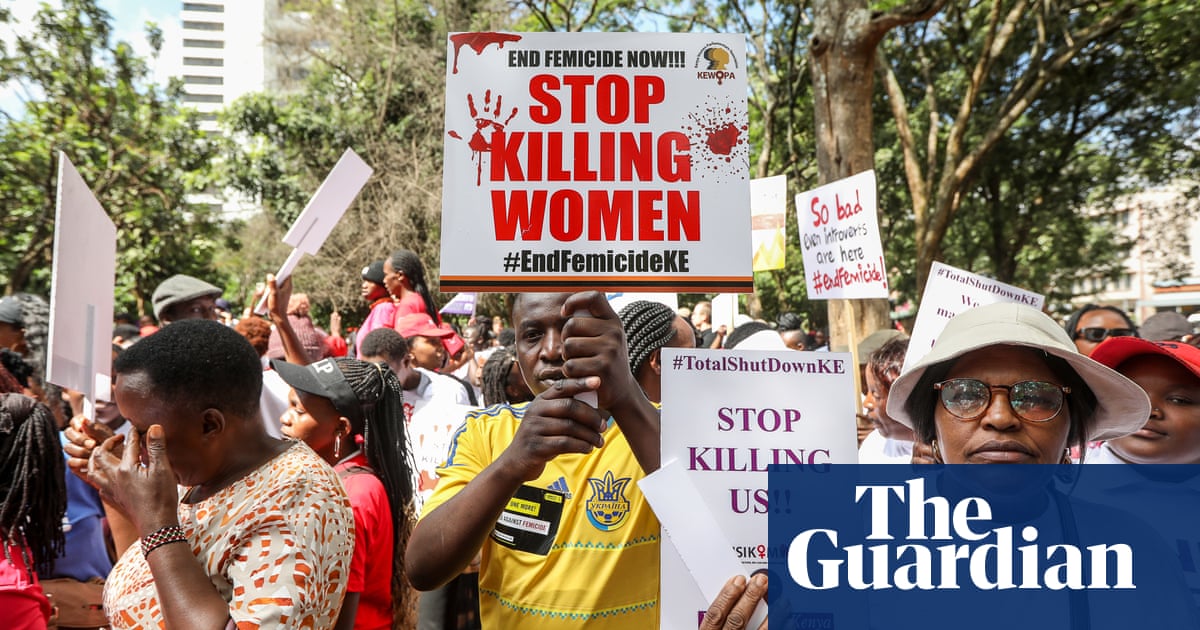
Demonstrations against the murder of women have occurred throughout Kenya following an increase in homicides this month.
There has been widespread public outcry, discussion, and protests throughout the country, including in Nairobi, Kisumu, and Mombasa, due to reports of at least twelve instances of femicide since the beginning of the year.
On Saturday, numerous cities witnessed thousands of women participating in marches while holding signs demanding an end to femicide. The signs displayed hashtags such as #StopKillingUs, #EndFemicideKe, and #WeJustWantToLive. Other posters included the names of women who have tragically lost their lives in recent months, with phrases like “Say Their Names” or “SheWasSomeone”. The internet was flooded with tens of thousands of posts demanding an end to the disturbing trend of violent killings.
Since 2016, at least 500 incidents of femicide have been documented in Kenya. However, organizations tracking these deaths believe that the true number may be even higher due to unreported cases and incomplete information in police and media reports, resulting in misclassification of these deaths.
According to the Africa Data Hub, most incidences of femicide were committed by men who were acquainted with the victims and were involved in intimate relationships with them. The organization discovered that a significant number of the murders were preceded by ongoing domestic abuse.
During the week leading up to the march, women expressed their concerns and motivations for participating in the protest. These included worries about their safety and interactions with men, as well as the impact of continuous news coverage about recent deaths and public discussions that challenged women’s autonomy.
Demonstrators demanded that femicide be officially acknowledged as a criminal offense, arguing that equating it with murder fails to acknowledge the specific circumstances in which these killings occur. These circumstances are defined by unequal power dynamics between men and women, as well as harmful societal expectations of gender.
Maria Angela Maina, a 26-year-old lawyer and advocate for gender equality, participated in the protests and stated that there is a lack of understanding about femicide among many individuals. She emphasized that the circumstances surrounding these murders are distinct from regular homicides. Maria also noted that the increasing awareness and vocalization of this issue, as seen in the recent protests, is incredibly impactful.
There is a rising outcry from activists that could indicate an increase in recognition of femicide, and they are optimistic that it will lead to improved enforcement of laws designed to protect women.
Unfortunately, there were instances of opposition and intimidation towards the protesters. One video circulating online showed two men expressing their disapproval of the demonstration and making threats to harm women. During this incident, one of the men went on a rant about how women are expected to engage in sexual acts in exchange for financial benefits or else face repercussions.
Boniface Mwangi, a social activist, urged more men to join the fight against violent killings. He stated that as Kenyan men, it is important to speak out strongly against femicide. He also emphasized that the actions of these violent men do not represent the men he knows, as a man and a father himself.
There has been an increase in demands for the country’s leaders to take action on the issue of femicide.
Akili Dada, a non-profit organization for women, urges the authorities to take immediate action and implement effective measures to safeguard the rights of women and girls. The need for action is urgent.
Source: theguardian.com


















